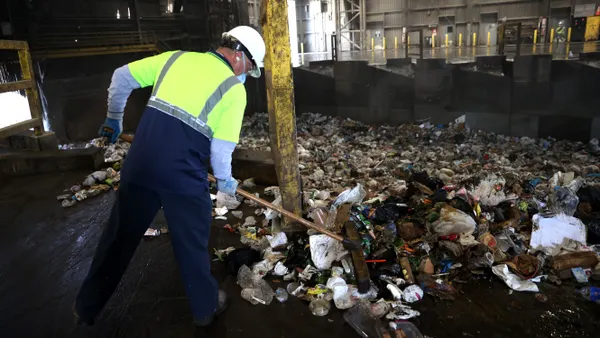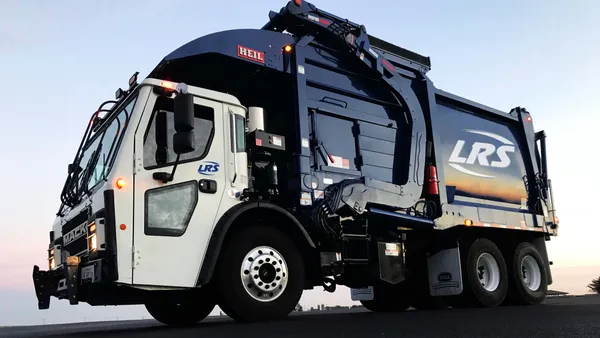UPDATED, June 12, 2018: Madison, Wisconsin has decided to cancel its curbside organics collection pilot after seven years, effective this month, as reported by the Wisconsin State Journal and WISC-TV.
High contamination among the 1,100 households and 40 businesses participating was cited as one of the main factors. This had been resulting in $200-per-ton fees at the GL Dairy Biogas digester, as compared to $50-per-ton landfill tip fees.
"We are committed to making this work,” Recycling Coordinator Bryan Johnson told the Journal, but "what we’ve been getting out of the bins really is just incompatible with the processing options."
City officials plan to reevaluate other options to eventually resume organics collection, including private curbside composting service or a future partnership with the Madison Metropolitan Sewerage District for upgrades that enable co-digestion.
Dive Brief:
- Madison's curbside compost pilot program currently reaches about 1,100 households — about 1% of total households in the city — as reported by the Wisconsin State Journal. The pilot began with about 500 households and has struggled with financing since launching.
- Madison's Recycling Coordinator Bryan Johnson said the issue that has "dogged" the city's program is contamination, largely from plastic material including bags, bottles and food containers.
- Funding priorities listed ahead of curbside composting include "issues related to poverty" and dealing with an invasive insect, as noted by by Mayor Paul Soglin. The city council is still supportive of curbside composting, but President Marsha Rummel cited the lack of a plan to build a city digester as the "big financial issue."
Dive Insight:
In 2013, two years after launch, city officials made it a goal to expand the municipal program citywide by 2016, a milestone that has been missed. Similarly, in 2012, city officials were looking to build an anaerobic digester; in 2014, the expansion of that program was the most-named priority in an online survey. However, later that year, program expansion was put on hold until Oct. 2015.
While the latest survey from BioCycle and the Institute for Local Self-Reliance revealed a near-doubling in the number of communities with curbside organics collection, the total households served by such programs is still just a small fragment of the population. It is possible that other communities across the U.S., like Madison, struggle to fulfill the high up-front cost of building an anaerobic digester or separate carts for organics before launching or expanding curbside organics programs. One method to make organics collection more feasible — and one that's been considered in Madison — is pay-as-you-throw.
On the other hand, there are plenty of organics success stories. Austin, TX continues to expand curbside organics, Los Angeles is looking at expanding an organics program, Republic Services distributed over 70,000 carts for organics collection in Boise, ID and Massachusetts is projected to see continued growth in organics development.










